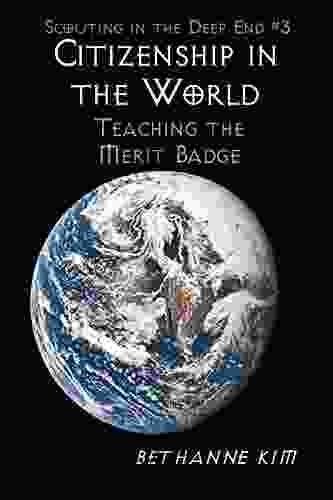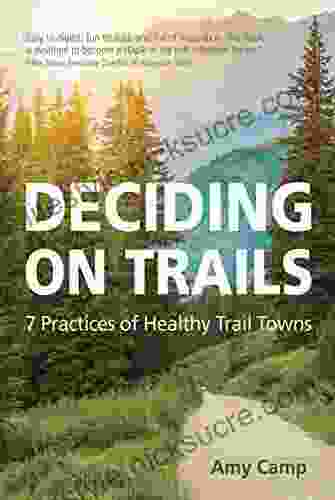Unveiling Research Real Talk: Navigating the Labyrinth of Shenanigans

Research, the cornerstone of scientific advancement and knowledge creation, is a complex and multifaceted endeavor. Amidst the pursuit of truth and innovation, there lies a somber reality: the existence of research shenanigans. These practices, encompassing a wide spectrum of unethical and deceptive behaviors, pose a significant threat to the integrity of research and the trust placed in it.
4.8 out of 5
| Language | : | English |
| File size | : | 9274 KB |
| Text-to-Speech | : | Enabled |
| Screen Reader | : | Supported |
| Enhanced typesetting | : | Enabled |
| Word Wise | : | Enabled |
| Print length | : | 192 pages |
In this article, we embark on a journey to unveil Research Real Talk, a platform dedicated to shedding light on the often-hidden world of research shenanigans. By delving into the strategies employed by perpetrators of such misconduct, we aim to empower researchers, institutions, and the public with the knowledge and tools necessary to safeguard the sanctity of research.
Deceptive Data Manipulation: Fabricating, Falsifying, and Omitting
Data fabrication and falsification represent the most egregious forms of research shenanigans. Fabrication involves creating or inventing data that does not exist, while falsification refers to altering or manipulating existing data to misrepresent the findings. Both practices seriously undermine the validity and reliability of research, leading to false s and a distorted understanding of reality.
A less overt but equally problematic form of data manipulation is omission. Selective reporting or withholding of data can skew results and hide unfavorable findings. This practice can lead to biased s and hinder the ability of other researchers to replicate or build upon the work in question.
Plagiarism and Self-Plagiarism: Stealing Intellectual Property
Plagiarism, the unauthorized use or reproduction of someone else's work, is a rampant form of research misconduct. It involves presenting the ideas, words, or data of another author as one's own, without proper attribution. This unethical practice undermines the originality and integrity of research, eroding trust in the scientific community.
Self-plagiarism, also known as duplicate publication, occurs when researchers republish their own work in multiple journals or publications without disclosing the overlap. While not as severe as plagiarism, self-plagiarism can inflate an author's publication count and potentially mislead readers into believing that the work is novel or has been independently verified.
Authorship Manipulation: Unethical Collaborations and Ghostwriting
Authorship manipulation involves misrepresenting the contributions of individuals to a research publication. This can take various forms, such as excluding deserving authors, adding authors who did not contribute significantly, or ghostwriting, where someone is paid to write a paper but is not credited as an author.
Unethical authorship practices can inflate the credentials of certain individuals, undermine the recognition of true contributors, and create a false sense of legitimacy for the research. It also hinders the ability of readers to assess the credibility and expertise of the authors involved.
Conflicts of Interest: Biasing Research for Personal Gain
Conflicts of interest arise when a researcher has a financial, personal, or professional relationship that could potentially influence the objectivity of their research. Such conflicts can lead to biased research design, interpretation, or reporting.
For example, researchers with ties to a particular industry or company may be inclined to favor findings that support their interests. Failure to disclose conflicts of interest can erode public trust in research and hinder the ability of other researchers to evaluate the validity of the findings.
Consequences of Research Shenanigans: A Grave Impact
The consequences of research shenanigans extend far beyond the individual perpetrators. They can damage the reputation of institutions, undermine the public's trust in science, and hinder the advancement of knowledge. Misleading or flawed research can lead to incorrect policies, ineffective interventions, and wasted resources.
Furthermore, research misconduct can create a culture of fear and distrust within the scientific community, as researchers may hesitate to challenge or report unethical practices for fear of retaliation. This can have a chilling effect on open and honest research, further compromising the integrity of the scientific process.
Combating Research Shenanigans: Strategies for Institutions and Individuals
Addressing research shenanigans requires a multi-pronged approach involving institutions, researchers, and the public. Institutions should develop and implement robust policies and procedures for preventing and detecting misconduct, including whistleblower protection and anonymous reporting mechanisms.
Researchers have an ethical obligation to uphold the highest standards of conduct and to report any suspected misconduct. They should be aware of the various forms of shenanigans and be vigilant for any red flags that may indicate unethical practices.
The public plays a vital role in holding researchers and institutions accountable. By raising awareness about research misconduct, supporting whistleblowers, and demanding transparency in research practices, the public can help ensure that research is conducted with integrity and trustworthiness.
Research Real Talk is a crucial platform that brings to light the often-hidden world of research shenanigans. By exposing the strategies employed by perpetrators of misconduct, we aim to empower researchers, institutions, and the public with the knowledge and tools necessary to safeguard the sanctity of research.
Combating research shenanigans is essential for maintaining the integrity of scientific research and ensuring that the public can trust the findings that shape our policies, interventions, and understanding of the world. Through collaboration, vigilance, and unwavering commitment to ethical conduct, we can create a culture of research excellence that is free from the blight of shenanigans.
4.8 out of 5
| Language | : | English |
| File size | : | 9274 KB |
| Text-to-Speech | : | Enabled |
| Screen Reader | : | Supported |
| Enhanced typesetting | : | Enabled |
| Word Wise | : | Enabled |
| Print length | : | 192 pages |
Do you want to contribute by writing guest posts on this blog?
Please contact us and send us a resume of previous articles that you have written.
 Fiction
Fiction Non Fiction
Non Fiction Romance
Romance Mystery
Mystery Thriller
Thriller SciFi
SciFi Fantasy
Fantasy Horror
Horror Biography
Biography Selfhelp
Selfhelp Business
Business History
History Classics
Classics Poetry
Poetry Childrens
Childrens Young Adult
Young Adult Educational
Educational Cooking
Cooking Travel
Travel Lifestyle
Lifestyle Spirituality
Spirituality Health
Health Fitness
Fitness Technology
Technology Science
Science Arts
Arts Crafts
Crafts DIY
DIY Gardening
Gardening Petcare
Petcare Mitt Romney
Mitt Romney Julie Barlow
Julie Barlow Sandra Luna Mccune
Sandra Luna Mccune Glenn Stout
Glenn Stout Don Stradley
Don Stradley Jocelyn Goodwin
Jocelyn Goodwin Joe Dante
Joe Dante Marco Ferrero
Marco Ferrero Janet Engle
Janet Engle Shannon O Bourne
Shannon O Bourne Melody Schreiber
Melody Schreiber Jonathon Miller Weisberger
Jonathon Miller Weisberger Denise Ni
Denise Ni Larry K Brendtro
Larry K Brendtro Patrick O Sullivan
Patrick O Sullivan Bridget Ericsson
Bridget Ericsson Kathy A Zahler
Kathy A Zahler Stephenie Meyer
Stephenie Meyer Sarah J Maas
Sarah J Maas Michael Cosgrove
Michael Cosgrove Cookie O Gorman
Cookie O Gorman Leslie Sansone
Leslie Sansone Andrey Ryanskiy
Andrey Ryanskiy Isabella Krystynek
Isabella Krystynek Amante P Marinas
Amante P Marinas Amber O Neal Johnston
Amber O Neal Johnston Stanley I Greenspan
Stanley I Greenspan Peter Hayes
Peter Hayes Don Mann
Don Mann Amelia Edith Huddleston Barr
Amelia Edith Huddleston Barr Howard J Meditz
Howard J Meditz Shanna Cunning
Shanna Cunning Ellie Wood
Ellie Wood Devin Olsen
Devin Olsen Frank Nappi
Frank Nappi Shaun Gallagher
Shaun Gallagher Heidi J Larson
Heidi J Larson Frederick Lenz
Frederick Lenz Ronda Rousey
Ronda Rousey Theresa I Soto
Theresa I Soto Tijan
Tijan Norman Doidge
Norman Doidge Ned Vizzini
Ned Vizzini Brendan Leonard
Brendan Leonard The 60 Minutes Summary
The 60 Minutes Summary Tim Hornbaker
Tim Hornbaker E T Bryant
E T Bryant Joseph P Weir
Joseph P Weir Gail Maccoll
Gail Maccoll Steven C Hayes
Steven C Hayes Garrett M Fitzmaurice
Garrett M Fitzmaurice Craig Larman
Craig Larman Jd Mader
Jd Mader Sean Go
Sean Go Rob Fisher
Rob Fisher American Psychological Association
American Psychological Association Steven Charleston
Steven Charleston Brian Klaas
Brian Klaas Victoria Wood
Victoria Wood Kezia Endsley
Kezia Endsley Gina Chen
Gina Chen Julie Schacht Sway
Julie Schacht Sway Arlene Blum
Arlene Blum Thomas J Whalen
Thomas J Whalen Terry Wieland
Terry Wieland June Cl Tan
June Cl Tan Jason Borte
Jason Borte Brittany Clair
Brittany Clair Rosalind Wiseman
Rosalind Wiseman Helena P Blavasky
Helena P Blavasky Sheri Van Dijk
Sheri Van Dijk Stephen J Collier
Stephen J Collier Jonathan Law
Jonathan Law Paul Kockelman
Paul Kockelman Jack Freeman
Jack Freeman Elizabeth S Gilbert
Elizabeth S Gilbert Michael Reichert
Michael Reichert Donna Williams
Donna Williams Amber Lee Sellers
Amber Lee Sellers Summer Michaud Skog
Summer Michaud Skog Mark Stallard
Mark Stallard William Rosen
William Rosen Jake Maddox
Jake Maddox Robert Melillo
Robert Melillo Trevor Day
Trevor Day Amber Zygutis
Amber Zygutis Karen Deerwester
Karen Deerwester Nikhil Bhardwaj
Nikhil Bhardwaj James E Packer
James E Packer Toni Tone
Toni Tone Jenny Landreth
Jenny Landreth John Mcpherson
John Mcpherson Mark Worden
Mark Worden Jennifer S Kelly
Jennifer S Kelly Lisa Maloney
Lisa Maloney Michael Abayomi
Michael Abayomi Carlo Buzzichelli
Carlo Buzzichelli Chloe Gong
Chloe Gong Sean Gibson
Sean Gibson Kathleen Glasgow
Kathleen Glasgow Jessica Hatcher Moore
Jessica Hatcher Moore John Jacobs
John Jacobs Jeanne Ryan
Jeanne Ryan Richard Wagamese
Richard Wagamese Elizabeth Lim
Elizabeth Lim Randy Schultz
Randy Schultz Stephen Barr
Stephen Barr P Aarne Vesilind
P Aarne Vesilind David Ranney
David Ranney Bruce Dowbiggin
Bruce Dowbiggin Josh Taylor
Josh Taylor Tamora Pierce
Tamora Pierce Camille Glenn
Camille Glenn J Marin Younker
J Marin Younker James W Williams
James W Williams Erik Qualman
Erik Qualman Joseph Klaits
Joseph Klaits Jack Tupp
Jack Tupp Temple Grandin
Temple Grandin Mariano Anaya
Mariano Anaya Adam Cort
Adam Cort Robert W D Ball
Robert W D Ball Vicki Hearne
Vicki Hearne Kathleen M Stacy
Kathleen M Stacy Paul Schwartz
Paul Schwartz Vinod Kumar Khanna
Vinod Kumar Khanna Suzanne Stabile
Suzanne Stabile Stanley J Farlow
Stanley J Farlow Christopher E Larsen
Christopher E Larsen Jeff Gaudette
Jeff Gaudette Kresley Cole
Kresley Cole Iain Pardoe
Iain Pardoe Theresa Y Wee M D
Theresa Y Wee M D American Math Academy
American Math Academy Joel Cotton
Joel Cotton Erin Chack
Erin Chack Paul Graham
Paul Graham Anthony Horowitz
Anthony Horowitz William G Dever
William G Dever Jayson Gaddis
Jayson Gaddis Alan Margot
Alan Margot Henry A Zumbrun 2
Henry A Zumbrun 2 Sarah Morgan Haydock
Sarah Morgan Haydock Amie Lands
Amie Lands Amber Foster
Amber Foster Andy Hunt
Andy Hunt C W Lockhart
C W Lockhart Alex Polyakov
Alex Polyakov Alexandrea Weis
Alexandrea Weis Tom Patri
Tom Patri Jennifer Margulis
Jennifer Margulis Maria Youtman
Maria Youtman Jameson M Wetmore
Jameson M Wetmore Robyn Davidson
Robyn Davidson Julie Mosier
Julie Mosier Amy Perry
Amy Perry Ashley Scott
Ashley Scott Alex Stone
Alex Stone Timothy Malcolm
Timothy Malcolm Chad Ford
Chad Ford Josephine Atluri
Josephine Atluri Andy Singleton
Andy Singleton Ruta Nonacs
Ruta Nonacs Tom Taulli
Tom Taulli Sheena Johnstone
Sheena Johnstone Stephen M Barr
Stephen M Barr Md Rezowan Ahmed
Md Rezowan Ahmed Amiee Mueller
Amiee Mueller Ned Seaton
Ned Seaton James P Kelly
James P Kelly Catherine Ryan Gregory
Catherine Ryan Gregory Jessica Cunsolo
Jessica Cunsolo Spike Dykes
Spike Dykes Amy Adele Hasinoff
Amy Adele Hasinoff Amber Lia
Amber Lia Dr Bob Rotella
Dr Bob Rotella Nicholeen Peck
Nicholeen Peck Autumn Jordon
Autumn Jordon Rob Antoun
Rob Antoun Josiah Hesse
Josiah Hesse Antonio R Damasio
Antonio R Damasio Tyler Simmons
Tyler Simmons Kumo Kagyu
Kumo Kagyu William Bohan
William Bohan Kieron Gillen
Kieron Gillen Silvia Botros
Silvia Botros Ruth M Tappen
Ruth M Tappen Courtney Defeo
Courtney Defeo Amy Camp
Amy Camp Matthew L Martin
Matthew L Martin Sonia Hartl
Sonia Hartl Dr Elizabeth Cherevaty Nd Rac
Dr Elizabeth Cherevaty Nd Rac Deborah J Rumsey
Deborah J Rumsey Amelia Parker
Amelia Parker Pav Bryan
Pav Bryan Michael R Poll
Michael R Poll Charles J Alsheimer
Charles J Alsheimer Louise Bates Ames
Louise Bates Ames Robb Walsh
Robb Walsh Dan Schlossberg
Dan Schlossberg Sarah Sumbal
Sarah SumbalK D
 Torey L Hayden
Torey L Hayden George Bernard Shaw
George Bernard Shaw Paul Wieland
Paul Wieland Jason Thompson
Jason Thompson Nick Kolenda
Nick Kolenda Julie Caplin
Julie Caplin Donovan Hohn
Donovan Hohn John Lukacs
John Lukacs Joan Freeman
Joan Freeman Douglas Wilson
Douglas Wilson Joseph Wayne Smith
Joseph Wayne Smith Heather Macfadyen
Heather Macfadyen Guillaume Haeringer
Guillaume Haeringer Christopher Harlan
Christopher Harlan Warren B Powell
Warren B Powell Catherine Dees
Catherine Dees Laura Slinn
Laura Slinn Sue Monk Kidd
Sue Monk Kidd Shere Hite
Shere Hite Charles Hall
Charles Hall Anne Chambers
Anne Chambers Mark Taylor
Mark Taylor Lars Andersen
Lars Andersen Marit Weisenberg
Marit Weisenberg Angela Moore
Angela Moore Kristine Kathryn Rusch
Kristine Kathryn Rusch Liz Fosslien
Liz Fosslien Jeremy J Baumberg
Jeremy J Baumberg Philip Gibson
Philip Gibson K F Breene
K F Breene Bethanne Kim
Bethanne Kim Kris Leonard
Kris Leonard Nathan Belofsky
Nathan Belofsky Doug Peterson
Doug Peterson Jan Marie Mueller
Jan Marie Mueller John Ferrell
John Ferrell Jeff Martone
Jeff Martone Rodney M Howard Browne
Rodney M Howard Browne Robert A Weinberg
Robert A Weinberg Jean Van T Hul
Jean Van T Hul Cheri Rae
Cheri Rae Martin Pollizotto
Martin Pollizotto John A Buehrens
John A Buehrens Cathy Williams
Cathy Williams Paul Kaplowitz
Paul Kaplowitz Kate Fox
Kate Fox Bill Carter
Bill Carter Sarah Woodbury
Sarah Woodbury Christopher Cousteau
Christopher Cousteau Rick Deutsch
Rick Deutsch David Elkington
David Elkington Philippa Langley
Philippa Langley Jim Santos
Jim Santos Redmond O Hanlon
Redmond O Hanlon Jacob Bronowski
Jacob Bronowski Tim Marshall
Tim Marshall Tom Deck
Tom Deck Tavi Gevinson
Tavi Gevinson Chris Carlsson
Chris Carlsson Stephen Walker
Stephen Walker Laurie A Watkins
Laurie A Watkins Jenni Hicks
Jenni Hicks Jack Falla
Jack Falla Ryan Gray
Ryan Gray Traci Gormley
Traci Gormley Lizabeth Hardman
Lizabeth Hardman Diane Greer
Diane Greer Wade Rouse
Wade Rouse Jan E Stets
Jan E Stets Shalabh Aggarwal
Shalabh Aggarwal William Glasser M D
William Glasser M D Vivian Vande Velde
Vivian Vande Velde James Mullaney
James Mullaney Tracy Lorraine
Tracy Lorraine Amy B Middleman
Amy B Middleman Lady Antiva
Lady Antiva Sian Warriner
Sian Warriner Joseph Mcmoneagle
Joseph Mcmoneagle Ana And Jack Hicks
Ana And Jack Hicks Alan I Marcus
Alan I Marcus Amber Smith
Amber Smith Paul Dickson
Paul Dickson Benjamin Jelen
Benjamin Jelen Cole Hersowitz
Cole Hersowitz Eric Zweig
Eric Zweig Pico Iyer
Pico Iyer Dr Scott A Johnson
Dr Scott A Johnson Katherine Kurtz
Katherine Kurtz Joe Dan Lowry
Joe Dan Lowry Peter Larson
Peter Larson Mark Turley
Mark Turley Danny Dreyer
Danny Dreyer Paul Oliver
Paul Oliver Michael Parker Pearson
Michael Parker Pearson Gia Giasullo
Gia Giasullo Clotaire Rapaille
Clotaire Rapaille David Burch
David Burch K M Shea
K M Shea Brian Kateman
Brian Kateman Mike Adamick
Mike Adamick Michelle Newhart
Michelle Newhart Claudia J Carr
Claudia J Carr Dave Hanson
Dave Hanson Jean Christie Ashmore
Jean Christie Ashmore Holly Herrick
Holly Herrick Jean Rose
Jean Rose Johan Norberg
Johan Norberg Matthew Lombardi
Matthew Lombardi American Baseball Coaches Association
American Baseball Coaches Association Ananda Lowe
Ananda Lowe Richard Cohen
Richard Cohen Marina Robb
Marina Robb Erica T Lehrer
Erica T Lehrer Naomi Oreskes
Naomi Oreskes David Grinspoon
David Grinspoon Amy Bizzarri
Amy Bizzarri Amy Bleuel
Amy Bleuel Grant Dever
Grant Dever Emma Mae Jenkins
Emma Mae Jenkins Roman Gelperin
Roman Gelperin Jack Weatherford
Jack Weatherford Desi Northup
Desi Northup Christine Fanthome
Christine Fanthome Valerie Bass
Valerie Bass J Stephen Jones
J Stephen Jones Neville Goddard
Neville Goddard Rich Rousseau
Rich Rousseau David Guymer
David Guymer Tabitha Suzuma
Tabitha Suzuma Wolf Moon
Wolf Moon Nicholas A Christakis
Nicholas A Christakis Meikang Qiu
Meikang Qiu Amby Cooper
Amby Cooper Kevin Stiegelmaier
Kevin Stiegelmaier Brian Pace
Brian Pace Amy Baldwin
Amy Baldwin Elise Christie
Elise Christie H Bedford Jones
H Bedford Jones David Yoon
David Yoon Pinky Mckay
Pinky Mckay David Salsburg
David Salsburg Tanya Turner
Tanya Turner Amit Saha
Amit Saha Eugene C Toy
Eugene C Toy Eric Tyndall
Eric Tyndall Clancy Cavnar
Clancy Cavnar Jonathan Bartlett
Jonathan Bartlett Rosanna Davison
Rosanna Davison Randall E Schumacker
Randall E Schumacker L Frank Baum
L Frank Baum Sharon K Zumbrunn
Sharon K Zumbrunn Ruth Nestvold
Ruth Nestvold Kathy Spratt
Kathy Spratt Gary Wiener
Gary Wiener Joseph Conrad
Joseph Conrad Kyle Hunt
Kyle Hunt Nisha Garg
Nisha Garg Kate Tietje
Kate Tietje Patricia L Papernow
Patricia L Papernow Marisa Anne Bass
Marisa Anne Bass Vince Kotchian
Vince Kotchian Dolores Kong
Dolores Kong Martin Williams
Martin Williams Therese A Rando
Therese A Rando Amira Mikhail
Amira Mikhail Amrita Pande
Amrita Pande Kasie West
Kasie West John L Field
John L Field Anthony Haynes
Anthony Haynes Byron Nelson
Byron Nelson Nina Freudenberger
Nina Freudenberger John Maxwell Wood
John Maxwell Wood Sandra T Barnes
Sandra T Barnes Tahlia Kirk
Tahlia Kirk Eric T Knight
Eric T Knight Fred Pyrczak
Fred Pyrczak Eugenia Viti
Eugenia Viti Ignatius Donnelly
Ignatius Donnelly Oscar Baechler
Oscar Baechler Hadley Wickham
Hadley Wickham Test Masters
Test Masters Sandra Bardwell
Sandra Bardwell Ray Mancini
Ray Mancini Chris Irons
Chris Irons Don Bowers
Don Bowers Mac Fortner
Mac Fortner Amy Brown
Amy Brown Krystal Sutherland
Krystal Sutherland Wendy Margolis
Wendy Margolis Amie Kaufman
Amie Kaufman J L Weil
J L Weil Cody Monk
Cody Monk Malba Tahan
Malba Tahan C L Simchick
C L Simchick Harley Reid
Harley Reid Md Mahady Hasan
Md Mahady Hasan Candy Verney
Candy Verney Andy Couturier
Andy Couturier Peter Worley
Peter Worley Joseph Howse
Joseph Howse Victor J Stenger
Victor J Stenger Charles Thompson
Charles Thompson Kate Parham Kordsmeier
Kate Parham Kordsmeier Michaela Riva Gaaserud
Michaela Riva Gaaserud Chad Starkey
Chad Starkey Dana Obleman
Dana Obleman Umer W
Umer W Pamela Lynn
Pamela Lynn Michael Ondaatje
Michael Ondaatje Joellen Patterson
Joellen Patterson Michael Winkelman
Michael Winkelman Ken Chaddock
Ken Chaddock Susanna Heli
Susanna Heli Cordelia K Castel
Cordelia K Castel Joe Nickell
Joe Nickell Jerry D Moore
Jerry D Moore Nikala Smith
Nikala Smith Thom Hartmann
Thom Hartmann Gal Dem
Gal Dem Steve Greenberg
Steve Greenberg Theodore Sider
Theodore Sider Christina Kamp
Christina Kamp Laekan Zea Kemp
Laekan Zea Kemp Jack Nisbet
Jack Nisbet Stephen Goodwin
Stephen Goodwin John Bingham
John Bingham Erika Napoletano
Erika Napoletano Trent Shelton
Trent Shelton Victoria Richards
Victoria Richards Amy Blakeslee
Amy Blakeslee Tom Colicchio
Tom Colicchio Dan Abnett
Dan Abnett Reinhold Messner
Reinhold Messner Swede Burns
Swede Burns Sarah Dessen
Sarah Dessen Rose Mannering
Rose Mannering Saleh Alkhalifa
Saleh Alkhalifa Amelia Freer
Amelia Freer Joe E Harvey
Joe E Harvey Susan White
Susan White Laini Taylor
Laini Taylor Eric E Bowne
Eric E Bowne Dom Amore
Dom Amore Buck Tilton
Buck Tilton Amara Charles
Amara Charles Art Star
Art Star Dmv Test Bank
Dmv Test Bank Sterling Test Prep
Sterling Test Prep Derrick Jensen
Derrick Jensen Helen E Fisher
Helen E Fisher Candida Lawrence
Candida Lawrence Kenneth P Stephens
Kenneth P Stephens Amir Alexander
Amir Alexander Jon Bonnell
Jon Bonnell Jeffrey Steadman
Jeffrey Steadman Dima Zales
Dima Zales Derek Thompson
Derek Thompson Marshall Goldsmith
Marshall Goldsmith Zeshan Qureshi
Zeshan Qureshi Deborah Lipsky
Deborah Lipsky Rick Stanton
Rick Stanton Anna B Doe
Anna B Doe Jack Ewing
Jack Ewing Django Paris
Django Paris Mark W T Harvey
Mark W T Harvey Rachel Gurevich
Rachel Gurevich Cynthia Gabriel
Cynthia Gabriel Edward J Denecke
Edward J Denecke Muhammad Vandestra
Muhammad Vandestra A Sorority Of Mothers
A Sorority Of Mothers Deborah Vinall Psyd Lmft
Deborah Vinall Psyd Lmft William Stillman
William Stillman Topher Donahue
Topher Donahue Amy Mccready
Amy Mccready Don Orwell
Don Orwell Gerald Corey
Gerald Corey Lisa Zimmer Hatch
Lisa Zimmer Hatch
Light bulbAdvertise smarter! Our strategic ad space ensures maximum exposure. Reserve your spot today!
 Gene SimmonsFollow ·12.6k
Gene SimmonsFollow ·12.6k Beau CarterFollow ·6.2k
Beau CarterFollow ·6.2k Alan TurnerFollow ·4k
Alan TurnerFollow ·4k George BellFollow ·17.8k
George BellFollow ·17.8k Federico García LorcaFollow ·19.8k
Federico García LorcaFollow ·19.8k Grayson BellFollow ·9.4k
Grayson BellFollow ·9.4k Russell MitchellFollow ·19.9k
Russell MitchellFollow ·19.9k Joe SimmonsFollow ·11.4k
Joe SimmonsFollow ·11.4k

 Ira Cox
Ira CoxUnveiling the Hidden Gem: Moon, Virginia - A Washington...
Nestled within the picturesque...

 Jorge Luis Borges
Jorge Luis BorgesThe Ultimate Survivalist's Medical Guide: A Comprehensive...
In the realm of...

 Henry Green
Henry GreenDavid Douglas: Exploring the Natural History of the...
David Douglas was a...

 Eric Hayes
Eric HayesUnderstanding Citizenship in a Globalized World: A...
Citizenship is a complex and multifaceted...

 Will Ward
Will WardUnveiling Research Real Talk: Navigating the Labyrinth of...
Research, the...
4.8 out of 5
| Language | : | English |
| File size | : | 9274 KB |
| Text-to-Speech | : | Enabled |
| Screen Reader | : | Supported |
| Enhanced typesetting | : | Enabled |
| Word Wise | : | Enabled |
| Print length | : | 192 pages |













